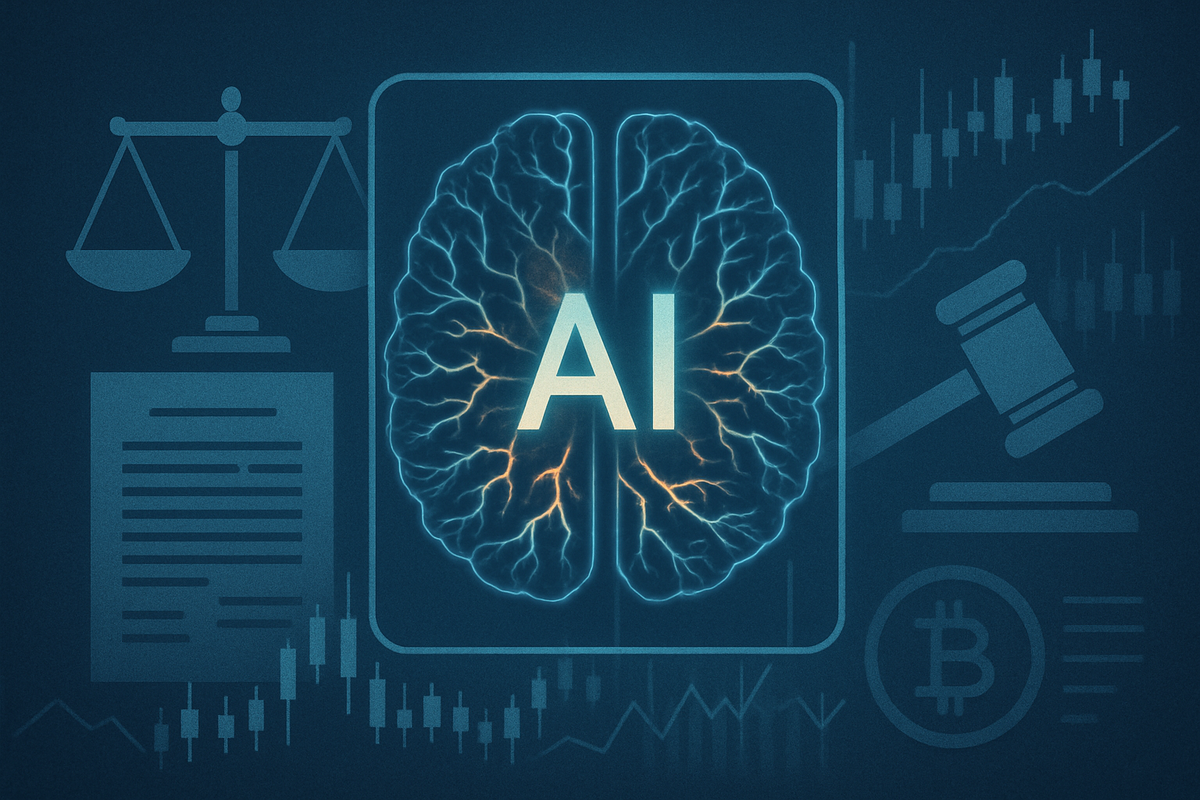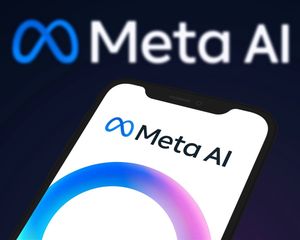
The burgeoning world of Artificial Intelligence (AI) is at a critical juncture, as a wave of regulatory actions and legal precedents underscores a global pivot towards accountability and ethical deployment. From federal courtrooms to state capitols, the message is clear: the era of unchecked AI development is drawing to a close. Recent events, including lawyers being sanctioned in a FIFA-related case for AI-generated falsehoods, California Governor Gavin Newsom's strong hint at signing a landmark AI bill, and intensifying discussions around governing autonomous "agentic AI," are collectively reshaping the landscape for technology firms and financial markets alike.
These developments, occurring as of September 24, 2025, signal an immediate and profound shift. For financial markets, the implications range from increased compliance costs for firms leveraging AI to a heightened demand for transparency and explainability in AI-driven decision-making. The AI industry, meanwhile, faces a transformative period, with a burgeoning market for responsible AI solutions and a necessary pivot towards "governance-by-design" to navigate a complex, and increasingly fragmented, regulatory environment.
The Hammer Falls: Specifics of AI Misuse and Legislative Momentum
The push for AI accountability has manifested in concrete actions across multiple fronts. A federal judge in Puerto Rico recently sanctioned two plaintiffs' lawyers from Reyes Lawyers PA and Olmo & Rodriguez Matias Law Office PSC, ordering them to pay over $24,400 in legal fees to opposing firms including Paul Weiss and Sidley Austin. The offense: submitting court filings riddled with "dozens" of "striking" errors, including citations to non-existent content and incorrect court attributions, all alleged to have been drafted with AI assistance. While the firms denied direct AI use, the judge deemed the origin "immaterial," emphasizing the submission of inaccurate information as the critical issue in this FIFA-related antitrust suit. This incident follows a pattern, echoing the $3,000 fine levied against Mike Lindell's lawyers in July 2025 for AI-generated fake court citations, and a $5,000 penalty in June 2023 for lawyers using ChatGPT to produce fabricated legal precedents. These cases highlight a zero-tolerance approach to AI-induced inaccuracies in professional contexts.
Concurrently, California is poised to lead U.S. states in AI regulation. On September 24, 2025, Governor Gavin Newsom announced his intention to sign SB 7, known as the "No Robo Bosses" Act, into law by the September 30 deadline. This landmark bill, set to take effect on January 1, 2026, focuses on the use of "automated decision systems" (ADS) in the workplace. It will prohibit employers from relying solely on AI for disciplinary or termination decisions and mandates written notice to workers about ADS use in employment-related decisions (such as hiring, performance, and scheduling) at least 30 days prior to deployment, or by April 1, 2026, for existing systems. Newsom, who previously vetoed other AI legislation citing premature frameworks, emphasized California's "sense of responsibility and accountability to lead" in AI regulation, aiming to strike a balance between innovation and legitimate concerns. Another bill, S.B. 524, addressing AI use in police reports, also awaits his signature, further cementing California's proactive stance.
Beyond specific legal cases and state legislation, a broader, intense discussion is underway regarding the governance and accountability of "agentic AI." These are systems capable of autonomously pursuing goals, making decisions, and adapting without constant human oversight. While their deployment is expanding across various sectors, a critical lack of transparency regarding their technical components, intended uses, and safety is a growing concern. A significant majority of experts (69%) agree that agentic AI necessitates new management approaches, viewing it as a paradigm shift demanding reimagined frameworks for human-AI collaboration. Discussions emphasize integrating human accountability into AI governance by clearly defining roles, responsibilities, decision-making protocols, and evaluation checkpoints throughout the AI lifecycle. Key concerns include potential for blurred accountability, increased security vulnerabilities, and inconsistencies if robust safeguards are not implemented.
Globally, the EU AI Act, which became effective on August 1, 2024, stands as a landmark framework, with its phased implementation meaning prohibitions on "unacceptable risk" AI systems became enforceable on February 2, 2025, and rules for general-purpose AI (GPAI) models applied from August 2, 2025. This Act employs a risk-based approach, mandating transparency, human oversight, and accountability, setting a global precedent for responsible AI development. Non-compliance can lead to substantial penalties, up to €35 million or 7% of a company's global annual turnover. These combined actions – legal repercussions, pioneering state legislation, and international frameworks – are driving immediate implications for financial markets, including increased compliance costs, heightened demand for transparency and explainability, enhanced risk management, and potential legal liabilities. For the AI industry, this translates into a growing demand for responsible AI solutions, a shift towards "governance-by-design," and the critical importance of data quality and governance.
Winners and Losers: Corporate Impacts of the AI Accountability Push
The intensified scrutiny and emerging regulatory frameworks around AI misuse are poised to create distinct winners and losers within the corporate landscape, particularly among public companies heavily invested in or impacted by AI. Companies that proactively embrace ethical AI development, transparency, and robust governance will likely thrive, while those that lag could face significant financial and reputational penalties.
Potential Winners:
- AI Governance and Compliance Solution Providers: This segment is set for substantial growth. Companies specializing in AI auditing, bias detection, explainable AI (XAI) tools, and compliance platforms will see surging demand. Firms like IBM (NYSE: IBM), with its long-standing focus on enterprise AI and governance solutions, and specialized startups in AI ethics and assurance, are well-positioned. Cybersecurity firms that can extend their offerings to AI model security and data integrity will also benefit.
- Consulting and Legal Services: The complex and evolving regulatory landscape will necessitate expert guidance. Major consulting firms (e.g., Deloitte, Accenture) and law firms with strong technology and regulatory practices (like Paul Weiss and Sidley Austin, involved in the FIFA case) will experience increased demand for advisory services related to AI compliance, risk assessment, and litigation defense.
- Cloud Providers with Robust AI Safety Features: Major cloud providers such as Google (NASDAQ: GOOGL) (via Google Cloud), Microsoft (NASDAQ: MSFT) (via Azure AI), and Amazon (NASDAQ: AMZN) (via AWS AI) that integrate strong ethical AI principles, privacy safeguards, and governance tools directly into their AI services will gain a competitive advantage. Their ability to offer "governance-by-design" solutions will be a key differentiator.
- Companies Prioritizing Ethical AI and Transparency: Businesses that make verifiable commitments to developing and deploying AI responsibly, with clear human oversight and explainable models, will build greater trust with consumers, regulators, and investors. This could apply across various sectors, from finance to healthcare, where AI adoption is high.
Potential Losers:
- AI Developers Lacking Governance Focus: AI startups and even larger tech companies that prioritize rapid deployment over ethical considerations, transparency, and compliance will face significant headwinds. The cost of retrofitting governance into existing AI systems can be prohibitive, and non-compliance could lead to hefty fines, as seen with the EU AI Act's penalties up to €35 million or 7% of global annual turnover.
- Companies Relying on "Black Box" AI: Industries that have heavily adopted AI without sufficient transparency or explainability, particularly in critical decision-making processes (e.g., credit scoring, hiring, medical diagnostics), will be vulnerable. Financial institutions using opaque AI models for investment decisions or risk assessment could face intense regulatory scrutiny and investor pushback.
- HR Tech Companies with Unregulated ADS: Firms providing automated decision systems for human resources, such as hiring algorithms or performance monitoring tools, will need to rapidly adapt to new legislation like California's SB 7. Those unable to provide transparency, notice, and human oversight in their systems could see their products become non-compliant or less attractive to employers.
- Financial Institutions with Inadequate AI Risk Management: The financial sector, already heavily regulated, faces magnified risks. Institutions that fail to develop robust governance structures, continuously assess AI-related risks, and ensure explainable AI in core financial decisions could incur substantial compliance costs, legal liabilities, and reputational damage. The SEC's intensified scrutiny and enforcement actions, including a recent $90 million settlement, serve as a stark warning.
Ultimately, the market is moving towards a landscape where AI innovation must be intrinsically linked with responsibility. Companies that proactively embed ethical considerations and robust governance into their AI strategies will not only mitigate risks but also unlock new market opportunities and build enduring trust in an increasingly AI-driven world.
A New Global Paradigm: Wider Significance and Broader Trends
The recent surge in AI regulatory actions, from specific legal sanctions to comprehensive legislative efforts, signifies a profound shift in the broader technological and economic landscape. This is not merely a series of isolated incidents but rather the crystallization of a global consensus that AI, while transformative, requires stringent governance to prevent misuse and ensure societal benefit. This movement fits into a broader industry trend emphasizing responsible technology development, moving beyond a "move fast and break things" mentality towards one of "innovate responsibly and build trust."
The ripple effects of these developments are far-reaching. The California "No Robo Bosses" Act, if signed, will likely serve as a blueprint for other U.S. states, potentially leading to a patchwork of state-level AI regulations before any comprehensive federal framework emerges. This could create compliance complexities for national and multinational corporations. Internationally, the EU AI Act has already set a global precedent, influencing regulatory discussions in Asia, Latin America, and other regions. Companies operating globally must now contend with a complex web of varying, yet generally converging, AI governance standards. This pressure will extend to AI component suppliers and partners, who will face increasing demands for transparency and verifiable ethical practices throughout the AI supply chain.
Regulatory and policy implications are significant. The emphasis on human accountability in agentic AI discussions, coupled with requirements for transparency and explainability, suggests a future where AI systems are designed with auditing and oversight as core features, not afterthoughts. This will necessitate the development of new industry standards for AI safety, fairness, and robustness. Historically, this mirrors the evolution of data privacy regulations, such as GDPR and CCPA, which initially seemed daunting but ultimately fostered greater consumer trust and forced companies to embed privacy by design. Similarly, the financial sector's history of regulation following crises (e.g., Dodd-Frank post-2008) provides a precedent for how a powerful, yet potentially destabilizing, technology like AI can be brought under stricter control to safeguard markets and public interest. The current moment is akin to the early days of internet regulation, where the boundless potential of a new technology gradually gave way to a recognition of its inherent risks and the need for guardrails.
The collective impact of these actions will likely accelerate the professionalization of AI ethics and governance as a core business function. It underscores that AI is no longer solely a technical challenge but an ethical, legal, and strategic one. Companies that embrace this holistic view will be better positioned to navigate the evolving regulatory landscape, mitigate risks, and build sustainable, trustworthy AI solutions that meet both market demands and societal expectations.
The Road Ahead: Navigating AI's Evolving Future
The current wave of AI regulatory actions marks a pivotal moment, ushering in an era where accountability and ethical considerations will increasingly shape the trajectory of AI development and deployment. Looking ahead, both short-term adjustments and long-term strategic shifts will be imperative for companies, investors, and policymakers.
In the short term, we can anticipate an acceleration in legal challenges and enforcement actions related to AI misuse. The FIFA case serves as a clear warning, and as more organizations deploy AI, the potential for errors, biases, and misapplications will inevitably lead to further litigation. This will, in turn, spur the rapid development and adoption of AI compliance and auditing tools, creating a booming market for specialized software and services. We may also see increased merger and acquisition activity in the AI governance space, as larger tech firms seek to acquire expertise and proprietary solutions to bolster their compliance offerings. Companies will need to conduct immediate audits of their existing AI systems, particularly those involved in high-stakes decision-making, to ensure alignment with emerging regulations like California's SB 7 and the EU AI Act.
Long-term, the industry is likely to witness the gradual emergence of more standardized global AI regulations, though achieving full harmonization will be a significant challenge given geopolitical differences. The establishment of AI-specific roles within organizations, such as Chief AI Ethics Officers, AI Compliance Managers, and AI Auditors, will become commonplace, reflecting the institutionalization of responsible AI practices. This will fundamentally alter AI development methodologies, shifting towards a "trustworthy AI" paradigm where explainability, fairness, and robustness are integrated from the initial design phase, rather than being addressed as afterthoughts. This could also lead to a more mature and resilient AI ecosystem, where public trust, rather than just technological prowess, becomes a key differentiator.
Market opportunities will abound for companies that can provide verifiable solutions for AI governance, risk management, and compliance. This includes not only software vendors but also consulting firms specializing in AI ethics, legal advisory services, and educational institutions offering specialized training in responsible AI. Conversely, a significant challenge will be navigating the potentially fragmented regulatory landscape, especially for multinational corporations, requiring agile compliance strategies. There's also a risk that over-regulation, if not carefully balanced, could stifle innovation, particularly for smaller startups with limited resources.
Potential scenarios range from a rapid global convergence on AI regulatory frameworks, fostering a clear path for responsible innovation, to continued fragmentation that complicates international AI deployment. Another scenario could see a temporary "AI winter" in certain sectors due to perceived over-regulation, slowing down adoption. However, the most likely outcome is a balanced approach, where robust governance frameworks foster greater confidence in AI, leading to more sustainable and impactful integration of the technology across all sectors. Investors should closely monitor legislative developments, enforcement trends, the performance of AI governance solution providers, and the adoption rates of ethically designed AI systems as key indicators of market direction in the coming months and years.
Charting the Course: A Comprehensive Wrap-Up
The unfolding narrative of AI regulation and accountability marks a definitive turning point for financial markets and the technology industry. The recent sanctions against lawyers for AI misuse, California's proactive legislative steps, and the global discourse on agentic AI governance collectively underscore a fundamental shift: AI is no longer a wild frontier but a powerful technology demanding stringent oversight. The key takeaway is clear – the era of self-regulation for AI is rapidly drawing to a close, replaced by an imperative for external governance and verifiable responsibility.
Moving forward, the market will increasingly reward companies that embed ethical considerations and robust governance into the very fabric of their AI strategies. Compliance costs will undoubtedly rise, particularly for financial institutions and large enterprises, necessitating significant investments in AI governance frameworks, explainable AI technologies, and dedicated compliance teams. However, these investments should be viewed not merely as burdens, but as essential safeguards that build trust, mitigate legal and reputational risks, and ultimately unlock sustainable growth in an AI-driven economy. The demand for transparency and accountability will become a non-negotiable aspect of AI deployment, influencing everything from product design to investor relations.
The lasting impact of these developments will be a more mature, resilient, and trustworthy AI ecosystem. While the initial phase of rapid, often unregulated, innovation brought groundbreaking advancements, it also exposed significant risks. The current regulatory push aims to mitigate these risks, ensuring that AI's transformative power is harnessed responsibly for the benefit of all stakeholders. This will likely foster a more discerning approach to AI adoption, where quality, safety, and ethical alignment are prioritized over sheer speed of deployment.
Investors should pay close attention to several critical indicators in the coming months. Firstly, monitor further legislative actions at both state and federal levels, as well as international regulatory harmonization efforts. Secondly, observe enforcement trends, as regulatory bodies begin to flex their muscles, setting precedents for non-compliance. Thirdly, evaluate the performance and growth of companies specializing in AI governance, compliance, and ethical AI solutions, as these are poised to become indispensable partners for businesses navigating this new landscape. Finally, watch for how public companies, particularly those heavily reliant on AI, adapt their strategies, disclose their AI governance practices, and demonstrate a commitment to responsible innovation. The companies that embrace this new paradigm of AI accountability will be the ones best positioned for long-term success.
This content is intended for informational purposes only and is not financial advice.





